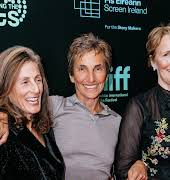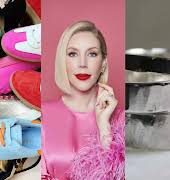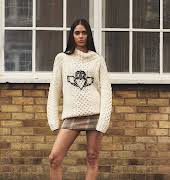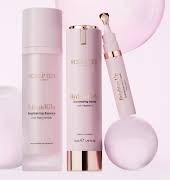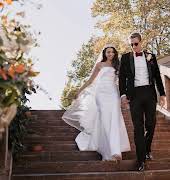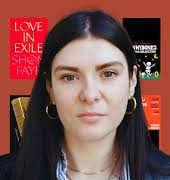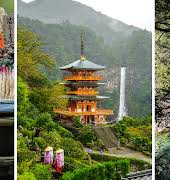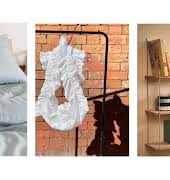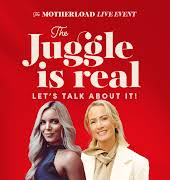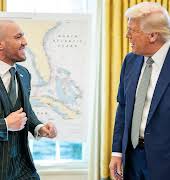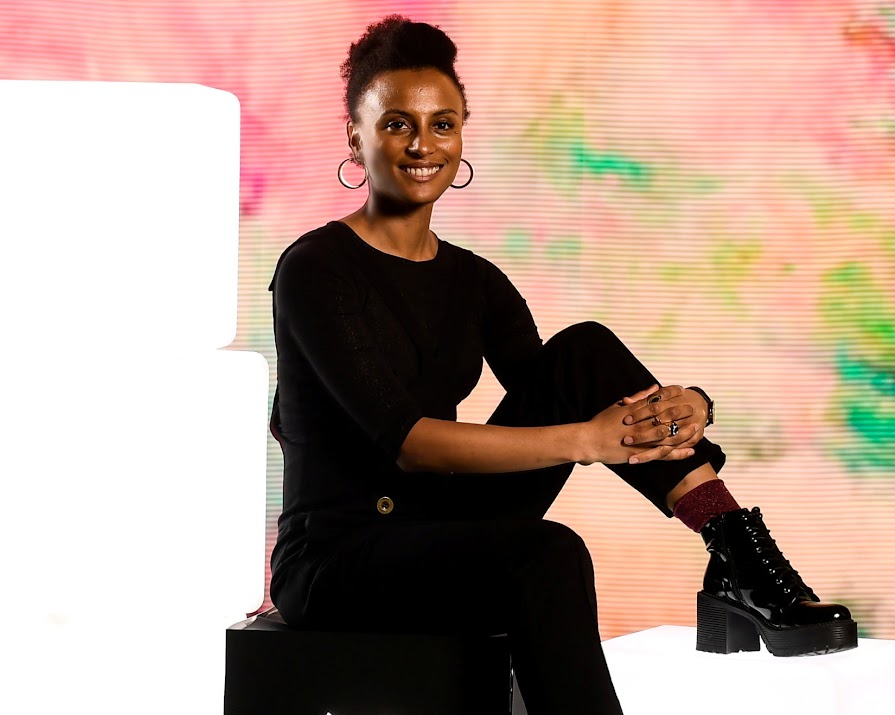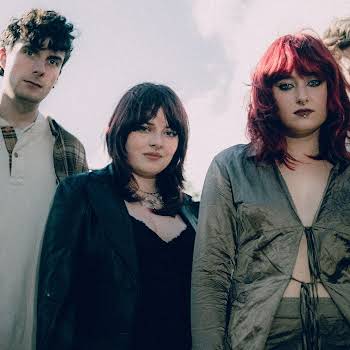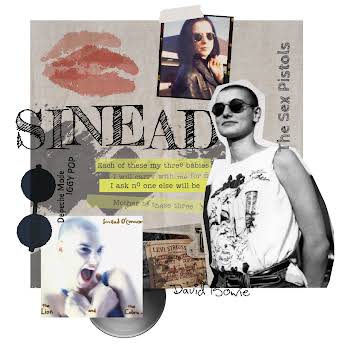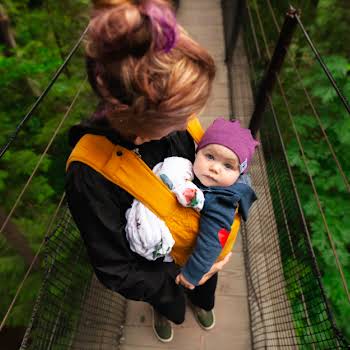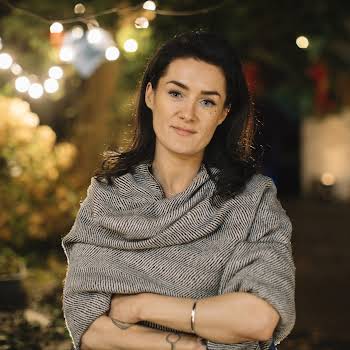
Sierra Leonean-Irish artist Loah: ‘We’re getting to know ourselves differently as Irish people’
By Erin Lindsay
06th Feb 2019
06th Feb 2019
Loah is a collection of paradoxes. The singer-songwriter is Sierra Leonean-Irish, and was brought up between the wild beauty of West Africa and the familiar Irishness of Maynooth. Her music is a genre-blend of soul, haunting folk, and African influence; she’s even given it its own name — ArtSoul. And while, when you meet her, with her rockstar fur coats and easy confidence, it seems that she was born to take to the stage, this hasn’t always been her career. She began working life as a pharmacist.
I sat down with Loah (real name Sallay Matu Garnett) to talk about her history with careers, and more importantly, career switches. We chatted about diversity in the Irish music scene, plans for 2019 and how making a change can, and should, happen at any age.
If anyone is a poster child for a campaign about career choices, it’s you — you started off in such a different industry to music, it’s hard to imagine you working in pharmacy. How did you decide to initially take that path, and how did you come to the decision to change completely?
Something I get asked a lot on this subject is “did you know what you wanted to do with your life at 16?” And I always answer that yes, I did — I knew I wanted to work in health, maybe in medicine or psychiatry. Music was always a hobby that I loved, and I did have a vague dream of being a singer-songwriter but didn’t think of it as a valid career option.
I don’t come from a family of artists, I’m the only one who has a career like mine. I think it’s so important to be exposed to other people doing the thing that you dream of, you that you can see the journey for yourself. But back then, there was no one, and I couldn’t see the journey.
I worked 2-3 days a week, to develop my hobby into a career, while still working to provide for myself.
So I trained and became qualified and registered as a pharmacist, which I still am. Studying and working full-time made keeping up my hobbies a lot harder. I felt a big emptiness in my life and I couldn’t figure out why that was, until I realised that it was because I wasn’t doing music. Even though I was in pharmacy, I realised I might have missed my calling.
I went to New York for a while, and when I came back, I made the decision to go part-time at work. I worked 2-3 days a week, to develop my hobby into a career, while still working to provide for myself.
For me, I really needed that safety net of a career in the background. I’m not a big risk taker and it was only when I was stable enough in myself that I made the switch because it was easier.
It’s interesting that you chose to keep working your day-job while building up music on the side — did you enjoy your job, or was music always pressing on your mind?
I loved it, that’s why it was so confusing to try and make that decision. I liked the work, I liked my colleagues, I liked the community aspect of it, and I have an interest in health science and improving health. All those things still interest me. Technically, I was quite successful by most people’s standards. But I wasn’t happy. I was so down in myself because I knew there was something missing.
The reality of any creative career is that it takes a lot of investment in the early stages to get your craft right
I was really afraid to break the news to my parents, but it turned out amazingly well. They didn’t mind at all — as far as they were concerned, I had my degree, so I had a safety net, so I should go and explore my other options. I had actually left college for a week in my very first year, saying that I wanted to leave and become a musician, and at that time, my parents were a lot stricter. But they were right — I didn’t have any sort of plan or idea how I was going to do it. Taking a big risk when I was so young would have been a mistake for me, it’s just not the type of person I am.
The reality of any creative career is that it takes a lot of investment in the early stages to get your craft right, and you don’t typically make a lot of money during that time. That’s why a lot of people drop out of creative careers, because they can’t get beyond the difficult beginnings. But I was able to protect myself against the harsher realities of the industry, because of my safety net, and many people don’t realise how important that is.
Now that your career as a musician is taking off, I wanted to ask you about your identity as a singer. Being Sierra Leonean-Irish, is reflected so strongly in everything about you, from your style to your music. How important is it to have a career that aligns strongly with your personal identity?
It was very important for me, because identity is a huge part of me, but it’s not for everyone. Some people feel very comfortable in a style of music that doesn’t necessarily relate to their identity – like with people who love the blues, but didn’t grow up in the deep south of America, but it still speaks to their heart.
I think people should always follow what they’re drawn to, even if its difficult to explain why you’re drawn to it. I was drawn to discovering and curating my own identity through my songs, but there are a lot of mixed race artists who don’t do that, and their music is still amazing.
Always follow a career that fits who you are, but don’t be concerned with fitting who others think you are.
I feel more and more like myself every day. I’m in a great place at the moment, even though it’s still difficult being an independent artist. I get so much satisfaction from my work. It’s like I’m in a relationship with it. I wake up every day and I have so many ideas that I don’t even have enough time to get them all done. I’m in a great creative juice-y place at the moment. That’s how I know that everything has clicked.
You are just one of so many musicians breaking the mould in Ireland at the moment. Artists of different backgrounds with different stories are breaking into the mainstream, and it’s a very exciting time. How do you view how diverse the music scene in Ireland is at the moment? How do you think it might progress in the next few years?
Things are changing dramatically in such a short space of time. I grew up with the singer-songwriter traditions of Ireland, as well as rock bands. As Irish people, we’re very open to foreign influence, maybe sometimes even too much. But as a result, and because of globalisation, the country has had an amazing burst of creativity.
We’re getting to know ourselves differently as Irish people.
Realistically, Ireland has always been about emigration and our influence on other places around the world. But what’s different now, is that instead of us leaving, many new people are coming into the country and changing within Ireland. And that’s really cool, because it’s a whole new narrative – it’s not happening as an invasion, it’s happening as a movement of people in a much more positive way. It’s a total new phase in Irish history.
It’s been a whirlwind of a start for your career — what’s been your highlight so far?
It’s a very hard one, but just because it’s so recent, I’d have to say getting the opportunity to sing with Lisa Hannigan. She was an absolute hero of mine as a teenager — I used to listen to her voice and just want to live inside it. Recently, I got to sing with her and become friends, which was just so amazing.
We’re just at the beginning of the year, but what are your big plans for 2019?
I’m currently working on a collaborative record with Cork-based producer Bantum, which is very exciting. There are plenty of gigs coming up this year too, before I get to release my own solo album in 2020. So lots of gigs and lots of new music all coming up!
Loah is just one of a range of Irish innovators involved in a new campaign by AIB. Their AIB Future Sparks Festival is set to take place in March of this year, where over 7,500 senior level students will descend on the RDS in Dublin to be inspired about career choices and opening up their potential.

